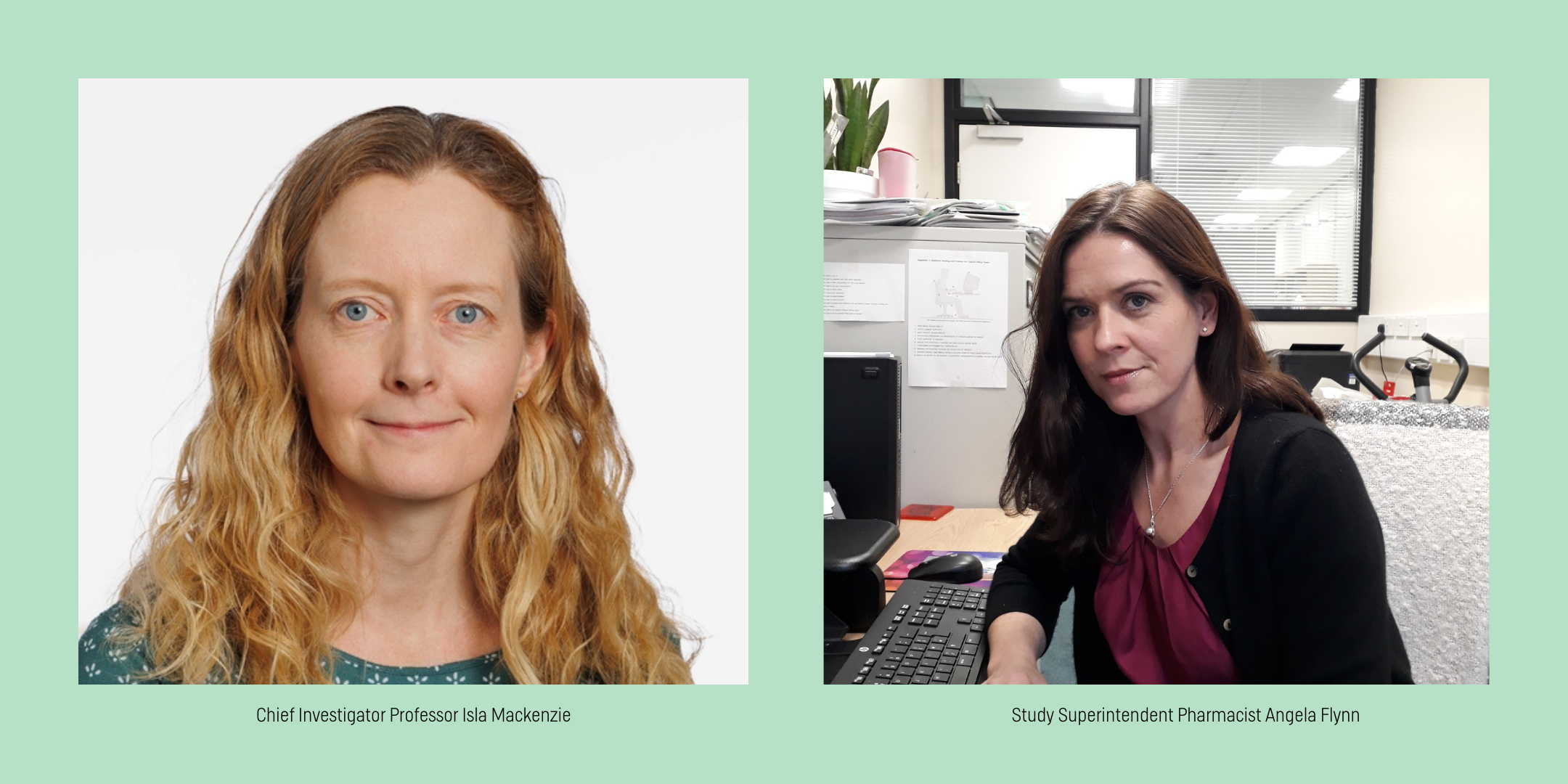
Hi there, Chief Investigator Professor Isla Mackenzie and Study Superintendent Pharmacist Angela Flynn at University of Dundee!
You have recently started to work with the RealHOPE investigational study that is going to investigate what environmental factors protein medicines are exposed to during normal use.
What is the primary focus of the patient study, and why is it significant?
– The study aims to gain a better understanding of what happens to prescribed medicines once patients have collected them from a pharmacy or they have been delivered to the patient at home. We are particularly interested in a group of medicines called protein medicines which are used to treat a wide number of health conditions for example insulin in diabetes, some treatments for inflammatory conditions, skin conditions and other health problems. Protein medicines may be more prone to being affected by how and where they are stored and transported. By using a credit-card sized smart label containing sensors attached to medication packaging we will see how much light and moisture medicines are exposed to as well as what temperature, movements, and vibrations it experiences during normal storage and handling by patients.

How is the recruitment of patients being conducted?
– The study is conducted in Scotland and patients who may be suitable to take part in this study are identified by their healthcare practitioners. Patients receiving protein medication for any condition may be included and will be invited to take part. Participation in this study is entirely voluntary and patients are free to withdraw at any time, without having to give a reason.
What specific actions or responsibilities do the participating patients have?
– Patients are invited to meet with a member of the study team – a nurse, pharmacist, or doctor – to discuss the details of the study and give their consent. The smart label that measures what happens to the medicine will be activated at the study visit and attached to the medication packaging. A study diary is given to the participant to fill in, including recording anything unexpected that happens to the medicine, for example if dropped. The date and time of receiving the medicine and the dates and times when used are also noted in the diary. A second visit is arranged after 2-4 weeks to return the used smart label and study diary to the study team.
What kinds of data are being collected?
– The smart label has a battery and sensors to detect movement, humidity, light and temperature over a period of approximately 2-4 weeks. The labels are being manufactured and provided for this study by Centre for Process Innovation (CPI). The sensors record any environmental exposures that the medicine packet encounters during normal transport, storage, and use. Data will be analysed to look for any events of interest.
The RealHOPE investigational study is ongoing and expected to report at the end of October 2024. The study is exploring the use of customised smart labels to measure specific stressors in real world handing of protein medication. This is a novel technique that will gain real-world data that records what happens from when these medications are collected or delivered to the patient to their being used. The study will provide knowledge about what environmental factors people’s protein medicines are exposed to during normal use. The information will be used to help produce educational information for patients and health professionals such as nurses, pharmacists, and doctors to improve the handling of protein medicines in future.

Latest comments